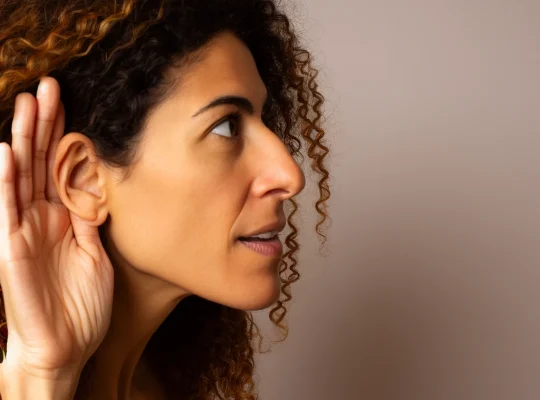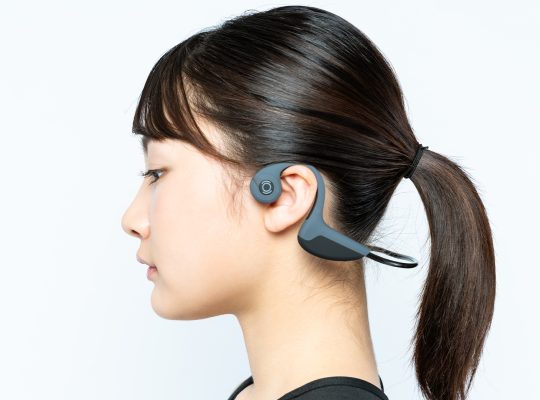My name is Robert van Spil, and as an audiologist at Horend Goed, I help people with a variety of hearing problems on a daily basis. One of the lesser known, but very impactful conditions I encounter is hyperacusis. In this blog, I will explain what hyperacusis is, where the name comes from, how it occurs, and what can be done about it. I will also discuss how an audiologist like me can help and what solutions are available.
What is Hyperacusis?
Hyperacusis is a condition in which people are hypersensitive to normal sound levels that others would consider normal or even soft. This can lead to significant discomfort and limitations in daily life. It is important to understand that hyperacusis is not just about hearing sounds louder than normal, but an uncomfortable or even painful reaction to sounds that are not disturbing to others.
Where Does the Name Hyperacusis Come From?
The term “hyperacusis” comes from the Greek word “hyper,” meaning “above” or “more than normal,” and “akousis,” meaning “hearing.” Taken together, hyperacusis thus literally means “overhearing” or “above normal hearing.” This name reflects the hypersensitivity to sounds characteristic of this condition.
When is it Hyperacusis?
Hyperacusis is not the same as general sensitivity to loud sounds. Everyone finds extremely loud sounds unpleasant, but people with hyperacusis experience discomfort or pain with sounds that are normal to others. Here are some signs that you might have hyperacusis:
- Sounds such as keys jingling, the turning of a key in a lock, or the tapping of a spoon on a plate cause discomfort or pain.
- Everyday sounds such as conversations, traffic, or music are perceived as overwhelming.
- You avoid social situations or public places because of the fear of sounds that can cause pain.
- You suffer from tinnitus (ringing in the ears) combined with noise hypersensitivity.
How Does Hyperacusis Originate?
The exact cause of hyperacusis is often difficult to determine, but there are several factors that may contribute to its development:
- Noise damage: Exposure to a sudden loud bang or prolonged exposure to noise may cause hyperacusis.
- Medical conditions: Conditions such as migraines, Lyme disease, multiple sclerosis, and Bell’s palsy have been associated with hyperacusis.
- Ear infections and trauma: Infections or injuries to the ear or head can cause hyperacusis.
- Psychological factors: Stress, anxiety, and depression can exacerbate hyperacusis or contribute to its development.
- Medical treatments: Certain medications or medical treatments, such as chemotherapy, can cause hyperacusis as a side effect.
What Can Be Done About It?
Treating Hypersensitivity to Sound can be complex and varies from person to person. There is no standard treatment that works for everyone, but there are several approaches that can help:
- Sound enrichment therapy: This involves exposure to soft, comfortable sounds to help your hearing system get used to sounds and reduce hypersensitivity.
- Cognitive behavioral therapy (CBT): CBT can help reduce the anxiety and stress associated with hyperacusis. It helps you change negative thoughts and behaviors around sounds.
- Protect your ears: Using hearing protection in loud environments can help prevent further damage, but it is important not to overprotect, as this can exacerbate hypersensitivity.
- Medical treatment: If hyperacusis is due to an underlying medical condition, treating that condition may help reduce symptoms.
- Adapt your environment: Provide quiet spaces at home and at work, and avoid places with lots of noise if possible.
How Can an Audiologist Help?
As an audiologist, there are several ways I can help treat hyperacusis:
- Diagnosis and Evaluation: I can perform a detailed hearing test to determine if you have hyperacusis and how severe it is.
- Advice and Support: I can advise you on the best ways to cope with hyperacusis and refer you to specialized therapists or doctors if needed.
- Hearing protection: I can provide custom-made hearing protection specifically designed to block harmful sounds without completely cutting you off from sound.
- Aftercare: I offer ongoing support and guidance to ensure you get the best results from your treatment.
What Solutions Are There?
In addition to the aforementioned treatment options, there are some specific products and technologies that can help with Hypersensitivity to Sound:
- Hearing aids with Tinnitus masks: These devices can help control both hyperacusis and tinnitus by producing soft background noise that masks disturbing sounds.
- Apps and Software: There are several apps and software programs available that can help with sound enrichment therapy and cognitive behavioral therapy.
- Hearing protection: Special hearing protection can help protect your ears from harmful sounds without completely cutting you off from the environment.
Conclusion Hypersensitivity to Sound
Hypersensitivity to Sound can be a challenging condition, but with the right approach and support, it is possible to manage symptoms and improve your quality of life. As an audiologist at Horend Goed, I am here to help you through every step of your treatment, from diagnosis and evaluation to counseling and aftercare. Please feel free to contact us for more information or to schedule an appointment. Together, we can work to find a solution that’s right for you. We work with Audiology centers and ENT doctors for complaints related to hyperacusis.







